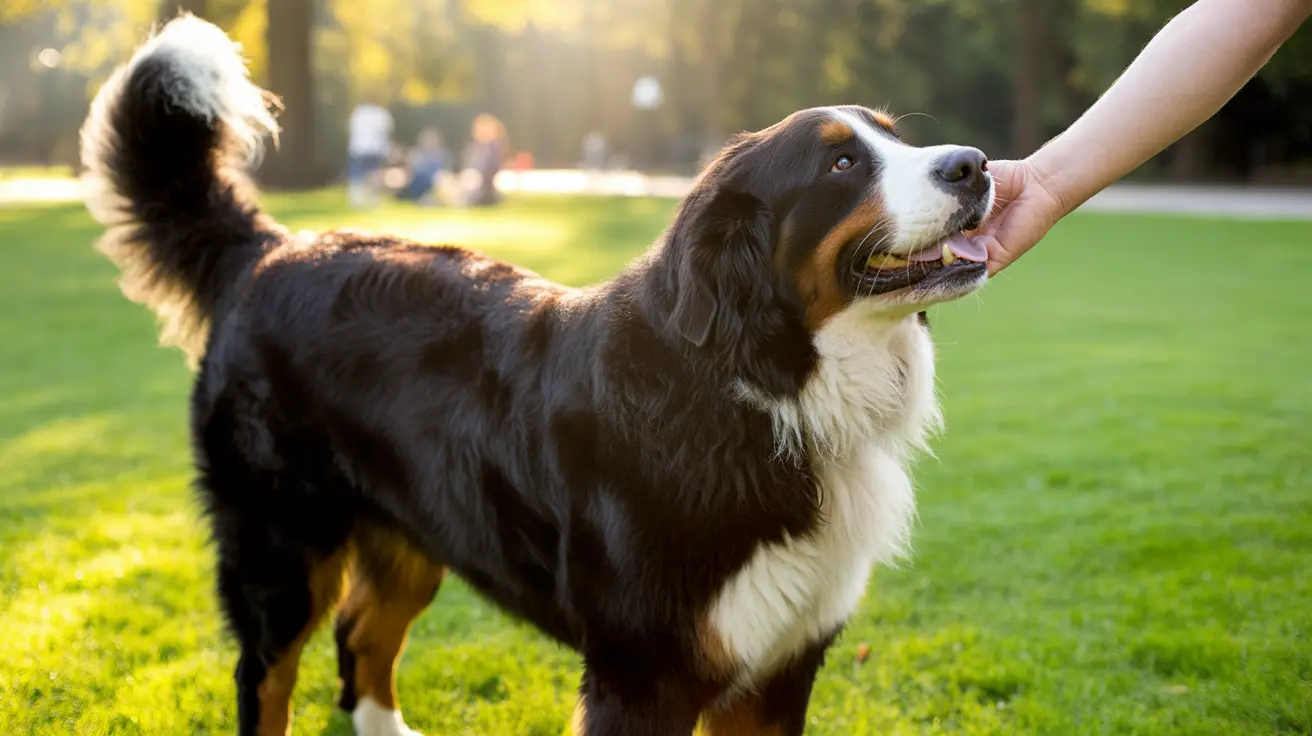If you've ever been around dogs, you've likely noticed their enthusiastic response to butt scratches. This peculiar yet endearing behavior isn't just a random preference – it's deeply rooted in canine anatomy, psychology, and social behavior. Let's explore the fascinating reasons behind why dogs enjoy having their rear ends scratched and what this behavior means for the human-canine bond.
Understanding this common behavior can help pet owners better connect with their furry friends while staying alert to potential health concerns. From nerve endings to social signaling, the science behind dogs' love of butt scratches reveals interesting insights into canine nature.
The Anatomy of Pleasure: Why Dogs Love Butt Scratches
The base of a dog's tail, commonly known as the rump area, contains a high concentration of nerve endings that make this spot particularly sensitive to touch. When scratched, these nerve endings trigger the release of endorphins – natural feel-good chemicals that create a sensation of pleasure and relaxation in your dog's body.
Additionally, this area contains the "sweet spot" that many dogs can't easily reach on their own, making human assistance particularly appreciated. The relief and pleasure derived from having this spot scratched often manifests in visible signs of enjoyment, such as leg kicking, tail wagging, or a relaxed, blissful expression.
The Social and Communication Aspect
Dogs are social animals with complex communication systems, and their enjoyment of butt scratches has deep roots in pack behavior. The rear area contains important scent glands that play a crucial role in canine communication. When a dog presents their rear for scratching, they're displaying trust and submission – behaviors that strengthen social bonds.
This interaction mirrors natural pack dynamics where subordinate members show trust to their leaders. When your dog seeks out butt scratches, they're not just looking for physical pleasure but also engaging in a social bonding ritual.
Health Benefits and Warning Signs
Regular butt scratches can serve as more than just a bonding activity. This interaction provides an opportunity for owners to check for any unusual bumps, skin irritations, or signs of parasites. The gentle stimulation can also help promote blood circulation and release muscle tension in the area.
However, if your dog suddenly becomes obsessed with having their rear scratched or shows signs of discomfort, it could indicate underlying health issues such as:
- Anal gland problems
- Skin allergies or irritations
- Flea infestations
- Muscle strain or injury
Reading Your Dog's Body Language
Not all dogs enjoy butt scratches equally, and it's crucial to understand and respect your pet's preferences. Positive signs that your dog is enjoying the interaction include:
- Leaning into the scratch
- Relaxed body posture
- Soft, content facial expression
- Staying in position for more
Conversely, if your dog moves away, tenses up, or shows signs of discomfort, it's important to respect these boundaries and stop the scratching.
Frequently Asked Questions
Why do dogs enjoy having their butt scratched more than other areas?
Dogs particularly enjoy butt scratches due to the high concentration of nerve endings in this area and the difficulty they have reaching it themselves. The sensation triggers the release of pleasure-inducing endorphins and often provides relief from hard-to-reach itches.
Can scratching my dog's butt help relieve their itching or discomfort?
Yes, gentle scratching can provide relief from minor itching or discomfort. However, if your dog shows excessive itching or discomfort, it's important to consult a veterinarian to rule out underlying health issues.
How does butt scratching strengthen the bond between my dog and me?
Butt scratching is a social interaction that demonstrates trust and affection. When dogs allow this type of touching, they're showing vulnerability and confidence in their human companion, which helps strengthen the emotional bond.
Could my dog's obsession with butt scratches signal a health problem?
Yes, if your dog suddenly becomes obsessed with having their rear scratched or shows signs of discomfort, it could indicate various health issues including anal gland problems, skin irritations, or parasites. Consult your veterinarian if you notice unusual changes in behavior.
What are the signs that my dog likes or dislikes butt scratches?
Signs of enjoyment include leaning into the scratch, relaxed body language, and seeking more attention. Signs of dislike include moving away, tensing up, growling, or showing other signs of discomfort. Always respect your dog's preferences and boundaries.
Conclusion
Understanding why dogs like their butt scratched provides valuable insights into canine behavior and health. While this common behavior usually represents a healthy form of bonding and pleasure for your pet, staying attentive to changes in their preferences or reactions can help ensure their continued well-being. Remember to always respect your dog's individual preferences and consult with a veterinarian if you notice any concerning changes in behavior.






